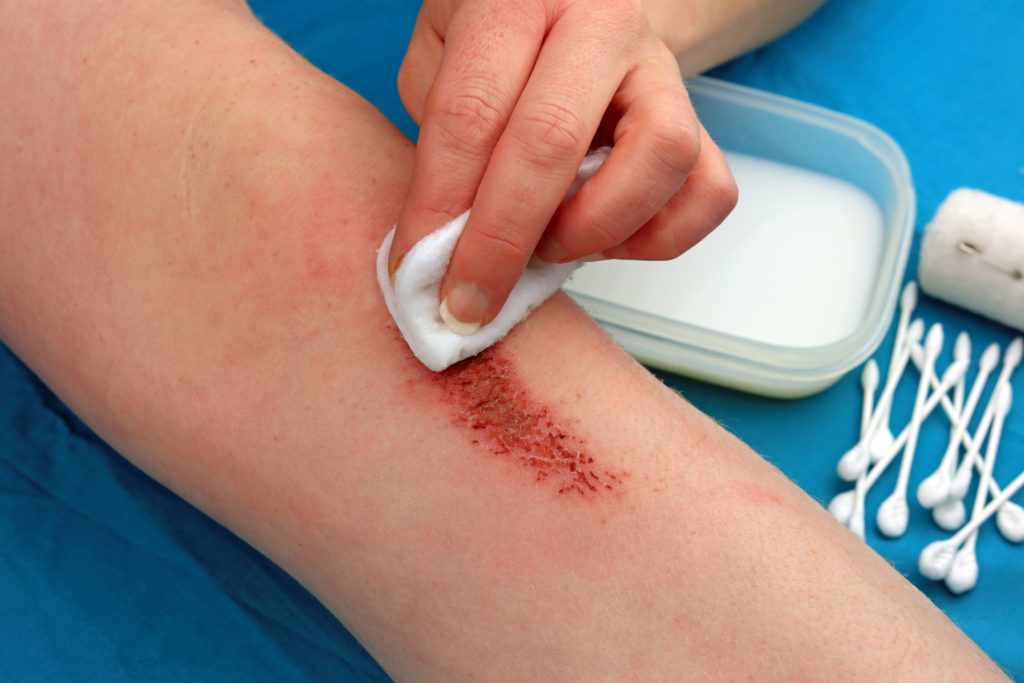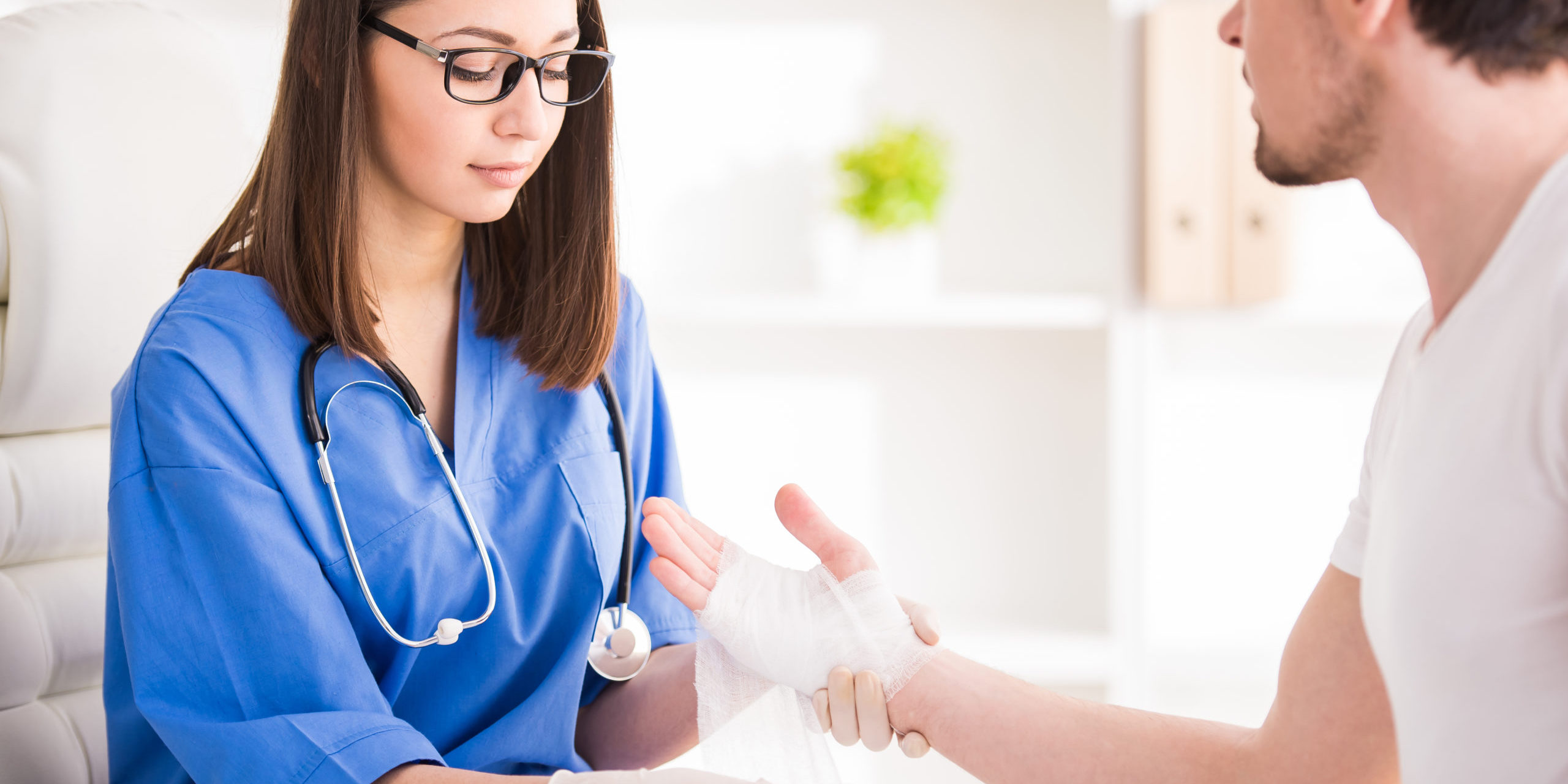Most wounds have the potential to heal on their own, but the healing process may be interrupted if a wound gets infected. In this article, we look at the signs of an infected wound, how to prevent infection and how to treat it.
What are the signs of an infected wound?
You can usually tell if a wound is infected by looking at it. A wound infection may also have an unpleasant odour.
The signs of infected wounds include:
- The skin around the wounded area is warm
- Yellow or green discharge or pus
- Unpleasant smell
- Red streaks on the surrounding skin
- Fever
- Increased pain
- Nausea
If you have a wound and notice any of the early signs of wound infection, seek medical attention straight away for a speedier and healthier recovery.
How does a wound become infected?
There are many types of bacteria in the environment and even in our bodies. These don’t usually affect us in a negative way because our skin acts as a barrier between bacteria and our inside tissue.
When a person has a wound, that skin barrier is broken and germs may get into the inside tissue. Although some level of germs can be dealt with, the presence of large amounts of bacteria is how an infection can start in a wound.
Deeper and larger wounds are more likely to develop an infection.
Other factors that make it more likely for an infection to develop include:
- The wound was caused by something dirty or rusty
- There is still something inside the wound (such as a piece of glass, splinter etc.)
- The wound was caused by an animal bite
- The wound has jagged edges
- The wound wasn’t cleaned straight away
A person might be more at risk of developing an infection if they:
- Are older
- Have diabetes type 1 or type 2
- Have a condition that affects their immune system (for example, HIV/Aids)
- Are taking medication or treatment that gives them a weak immune system (for example, steroids or chemotherapy)
- Are very overweight
How do you prevent a wound from getting infected?
To give wounds the best chance of healing properly, the affected area should be kept clean and free from harmful bacteria. The importance of an effective and consistent wound care routine is extremely important.

- The wound should be cleaned straight away after it occurs and then protected with the right dressing, for example, an Aero wound dressing.
- The wound should be kept clean and dry for the first 24 hours and wound dressings should be changed daily or whenever wet or dirty.
- Ensure that you wash your hands before and after you touch the wound to prevent any bacteria from getting into the wound. Nitrile disposable gloves can also be used to decrease the risk of bacteria spreading.
- Depending on the type of wound, you may be able to use an antiseptic cream to help keep germs away.
- Patients with wounds should stay hydrated and eat a healthy diet with lots of vitamin C to encourage healing.
What happens if a wound gets infected?
If a wound gets infected, it may interrupt the natural healing process because the body will be focused on fighting the infection instead of healing the wound. Infections also increase the risk of forming a scar.
Wounds that don’t follow the normal healing process are called chronic wounds. Infection is one cause of chronic wounds and may occur in any type of wound including surgical wounds, burns, cuts and bites.
An infection may spread to other areas of the skin, making them become red, swollen and painful.
A more serious infection may spread to deeper tissues and even into a person’s bloodstream. A severe infection can make you feel unwell, causing fever, nausea and vomiting.
How do you treat an infected wound?
Treatment of a wound infection depends on the type and severity of the infection. If you notice any of the signs of an infected wound, you should seek professional medical help to ensure the wound is treated properly.
A medical professional may take a wound swab and send it off to be analysed in the lab. This will tell them what type of bacteria is causing the infection and help them better identify how to help the healing process.

Medical personnel will help you keep the wound clean and dress the wound appropriately. They will also educate patients on how to look after their wound at home.
To ensure a faster recovery, the patient should make sure they are getting enough nutrition in their diet, especially vitamin C. They should also stay hydrated by drinking plenty of water.
A doctor may prescribe antibiotic ointment or tablets to help the body fight the infection and pain medication if required. They may also drain the wound if too much discharge forms.
Wound dressings for better wound healing
The right dressing is essential for the wound healing process, whether the wound was caused by surgery or trauma.

LFA First Response offers a wide range of wholesale medical supplies and wound dressings to assist with wound treatment and infection prevention. Whatever your needs are, our friendly customer service team can help.
Give us a call today on 1800 681 544 to see how we can assist.










